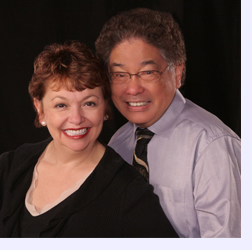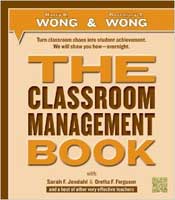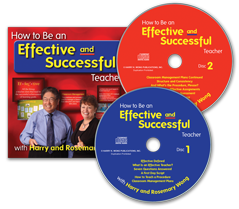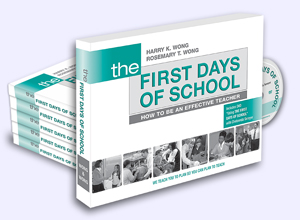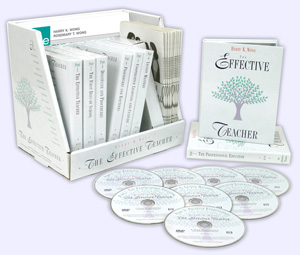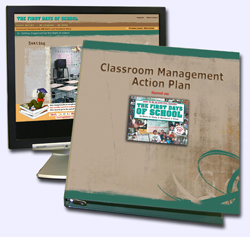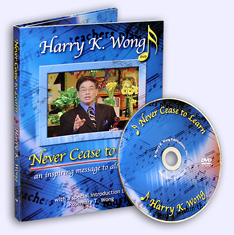|
 |

Special to the Gazette
March 2015
Teacher Effectiveness and Human Capital
Human Capital In 1992, Gary Becker, University of Chicago, received the Nobel Prize in economics for his work on Human Capital. In 2007, he was bestowed the Presidential Medal of Freedom for his work on Human Capital. This award recognizes people who have made "an especially meritorious contribution to the security or national interests of the United States, world peace, cultural or other significant public or private endeavors.” “Capital,” to most people, means tangible items and assets that are worth something. It could be a bank account, stocks, a business, a home, a piece of art, or anything we invest in to improve personal, monetary wealth. Becker said that tangible forms of capital are not the only type of capital. People, too, are assets. People are a type of capital. Just as we invest in tangible forms of capital, he said, if we invest in people, they will improve their useful outputs over long periods of time. Education, training, and health are the most important investments in human capital. Ask business people to name their most important asset and they will all say, “Our people.” People help a business to grow and prosper. But ask most school administrators to name their most important asset, and they will say “money” or “programs,” yet almost never say, their teachers. The single greatest effect on student achievement The most important asset of a school is its teachers; they are the most important factor in raising student learning and achievement. Teachers are the human capital of a school, and the more we invest in our teacher capital, the more they will improve their useful outputs over long periods of time. The greatest asset of an organization is its people. For the most part, schools do not build human capital. The leaders of the schools do not invest in the potential of their teachers. They do nothing to sustain growth. Instead, they buy programs. Programs do not teach; teachers teach. Programs are not a form of capital; they do not have potential. They are only useful in the hands of an effective teacher. Put technology in the classroom with poor instruction and the outcome will be more poor instruction. Programs and fads have no potential, no capacity. Programs are not a capital asset. Every teacher has the potential to be an effective teacher, one who is able to produce student learning and achievement. Effective school districts and schools build potential into all teachers with education and professional development. Capacity Building Teachers who have potential have capacity; that is, they have the potential or capacity to produce student learning. This concept is called “Capacity Building.” It refers to strengthening the skills, knowledge, competencies, and potential of people. As capacity is built in teachers, the human capital of a school district is built. Professional development is the major form of capacity building in a school district. Capacity building is an investment in the future sustainability of an organization, its human capital. In last month’s column, we described the lifelong professional development provided by the Flowing Wells Unified School District in Arizona. The district has been building human capital for the past 30 years. Click here to read about the comprehensive, coherent, and sustained professional development program of the Flowing Wells Unified School District. In Rhode Island, the Providence School district has an Office of Human Capital. The district’s leaders recognize that the teachers and administrators are the most valuable assets of their district. They have a program that develops and supports the district’s human capital. Nkoli Onye, Executive Director of Performance Management, is in the Office of Human Capital and has shared with us the district’s information. She also coordinates the many components of the district’s induction program with the support and collaborative efforts of the district’s superintendent, Dr. Susan Lusi, and the president of the Providence Teachers Union, Maribeth Calabro. The Providence School District believes that supporting and developing its educators in a thoughtful, systemic, and sustainable manner will result in significantly improved adult practices and thus, significantly improve student achievement.
In the fall of 2011, the Teacher Retention and Induction Network (T.R.A.I.N.) was created to serve as an umbrella for a network of programs designed to address the needs of new and beginning teachers, with the ultimate goal of dramatically improving student performance.
Click here to read the details of the Providence Retention and Induction Network program.
Human Capital: When effective principals lead, teachers lead, and their students learn significantly. Effective principals do this when they shape a vision of academic success for all students:
To accomplish these goals, Providence created the Leadership Induction and Retention Network (LEARN) to address the specific needs of principals and assistant principals and provide them with improved opportunities to learn, grow, and invest in their human capital. The major focus of the network is in the areas of
Currently, the two programs in this network are the Academy for Leveraging Leadership (ALL) and the Principal Induction Program (PIP). Both are designed to develop and support effective school leaders so as to positively and dramatically increase effective classroom practices and thus, achieve improved student success. Click here to read details of the Human Capital: Developing & Supporting Principals and Assistant Principals program. Nkoli Onye, director of the program, says that, thus far, exit tickets and survey results are quite promising. Participants in all programs demonstrate an understanding of the need of such programs and a deep desire to participate. Teachers and building leaders overwhelmingly report that the programs address the major issues they are facing in their schools and that they are tremendously helpful in improving their knowledge and skills. Yes, the Providence School District builds its human capital. Moberly School District: Collaboration is the most effective way for teachers to learn. Teachers learn more in sustained teacher networks and study groups than with individual mentors. In high-performing schools, teachers are more likely to work in a collegial approach that allows new teachers to observe others, to be observed by others, and to be part of networks or study groups where all teachers share together, grow together, and learn to respect each other’s work. The U.S. education system typically views teachers as independent operators. Teachers are expected to do a good job behind closed doors. Collaboration is rare. Worse yet, new teachers seldom see another classroom in action. Loneliness and lack of support further exacerbate the frustrations of beginning teachers. To ask a young, new teacher to go solo in a networked world is writing that teacher’s epitaph, and it might as well read, “Doomed from the start.”
These are the objectives of the S. H. I. N. E. program:
Click here to read a previous article written that describes the Moberly New Teacher Induction Program.
With the materials, each teacher creates a classroom management plan in a binder, ready for the first days of school and that they continue to add to during their career in Moberly.
Click here to read these documents Moberly gives to its teachers to use in creating a Classroom Management Plan:
The Moberly induction program not only structures its teachers to work collaboratively, they even give each new teacher a retired teacher who provides positive encouragement.
In Year 1 alone, these are the components of the Moberly induction program. Note how many are collaborative in nature. Year 1 Components
In Moberly, teachers who complete the induction program in its entirety, along with four years of teaching experience, receive the hours, training, and guidance necessary for certificate renewal. The overarching belief and goal is that by supporting new teachers, students will receive the best learning opportunities possible to strive for the district mission, “The Spartan Way—Excellence for All.” Teachers Are Our Greatest Assets In seven years, Tara says that they are the only district of its small, rural size in Missouri to have such an intensive, intentional program in place. Tara has noticed on the qualitative side that exit interviews show very few employees leaving unhappy. They feel supported, welcomed, and complimentary of their experience in the Moberly School District, despite the challenges they face in location and size. This is a reflection of a small, rural community that opens it arms to its educators. Effective schools have a culture where they consistently invest in teacher capital, and the Moberly School District invests in the effectiveness of its teachers. It makes no difference if it is a large urban district like Providence, or a small, rural district like Moberly—induction and professional development pay handsomely in producing human capital and investing in the assets of a district. If You Are Going It Alone If your good fortunes land you at Providence, Moberly, Flowing Wells, or any other school district that develops your potential as part of the district’s culture, count yourself very lucky. Capitalize on every opportunity given you to develop and invest in your human capital. But if you are in a district that is more the norm, one that says, “Here are your keys; there is your room; good luck!” and you are left to learn on your own, all is not lost. Open your door to others in your school. Let your colleagues know you want to work together, you want to collaborate, you want learn together. Form your own collaborative network to develop your capacity. Look to teacher-leaders in your district. Study them, emulate them. Find ways to reach out to them and pick their minds. Ask what they did to develop their capacity through the years. Use the Internet and social media. Form a support group online and operate it like a book club. Select a topic for all to study, read books and journal articles on the topic, read the professional literature about the topic. Discuss how to best put it into practice and bring your findings back to the group to discuss and refine. Return to your student teaching advisor and ask if there are any professional development activities available in your college’s school of education. Join a professional organization in the content area of your choosing. Go to the local, regional, or national conference for the organization. Attend sessions, introduce yourself to the people next to you, exchange business cards, ask questions, start a dialogue to be continued after the meeting is over. Be proactive in the development of your own capacity. Don’t blame others for the lack of opportunity. Learn to open the door yourself to discover a world of information that you can use to become the effective teacher you were meant to be.
|
|||||||||||||||
|



 T.R.A.I.N. is designed to provide peer-to-peer support to all new, beginning teachers as well as experienced teachers who have been identified as in need of assistance. There are two primary programs in this network—Teacher Induction Program (TIP) and Peer Assistance and Review (PAR). In both cases, coaching serves as the major driver.
T.R.A.I.N. is designed to provide peer-to-peer support to all new, beginning teachers as well as experienced teachers who have been identified as in need of assistance. There are two primary programs in this network—Teacher Induction Program (TIP) and Peer Assistance and Review (PAR). In both cases, coaching serves as the major driver.  Working alone is not done in Moberly. The Moberly School District is located in a small, rural town in Missouri. The Moberly School District has a new teacher induction program called S.H.I.N.E (Supporting, Helping, and Inspiring New Educators) that is coordinated by Tara Link. Its focus is to support, help, and inspire new teachers.
Working alone is not done in Moberly. The Moberly School District is located in a small, rural town in Missouri. The Moberly School District has a new teacher induction program called S.H.I.N.E (Supporting, Helping, and Inspiring New Educators) that is coordinated by Tara Link. Its focus is to support, help, and inspire new teachers.  Upon hiring, a new teacher is contacted by the S.H.I.N.E. Coordinator,
Upon hiring, a new teacher is contacted by the S.H.I.N.E. Coordinator, 



